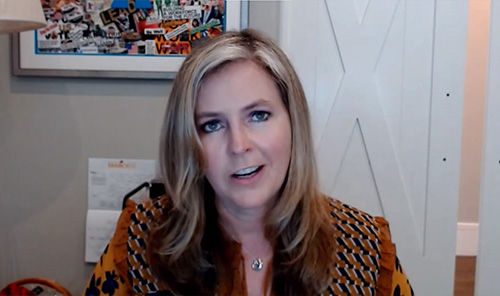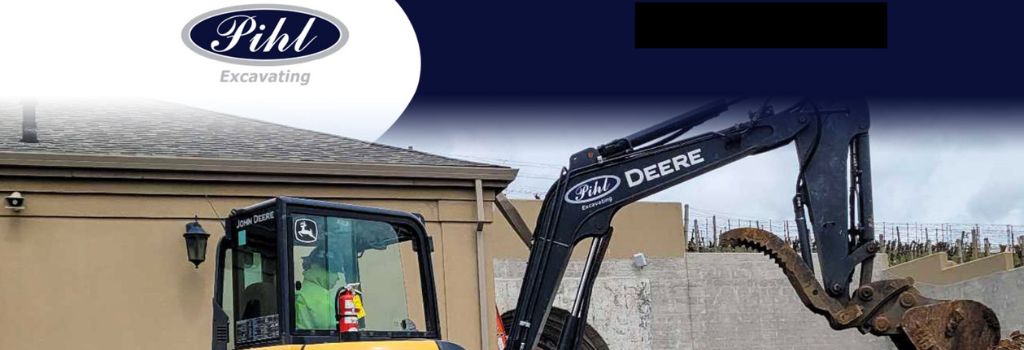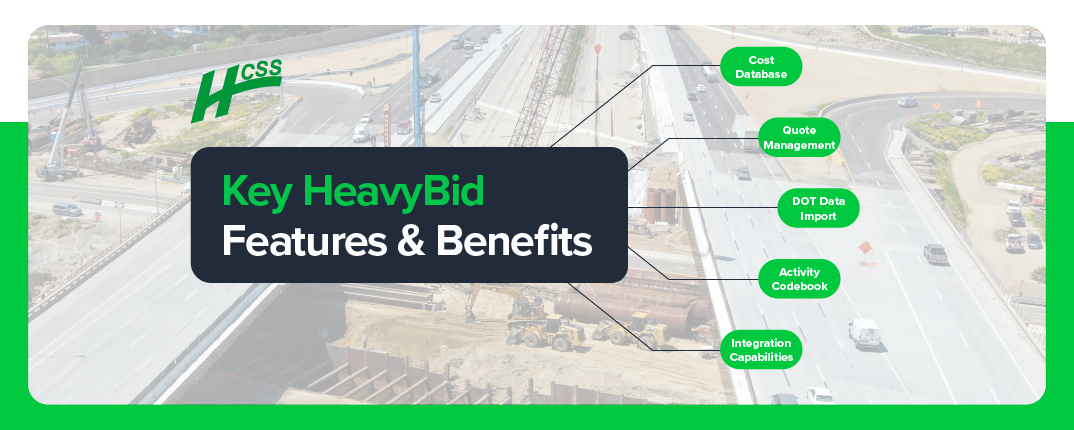Mary Teichert is the President of Teichert, Inc., which is a 135-year-old contractor, regionally based out of California and Western Nevada. It was started by her great great grandfather, Adolf Teichert, who was a foreman for the man who invented expansion joints. We got Ms. Teichert’s take on the top construction trends and how she thinks they'll impact the industry.
How will automated equipment change the industry?
We expect a few things to change when automated equipment is more common, but the centerpiece is really safety. There's a lot of exposure on a job site where operators are climbing in and out of cabs or are exposed to the environment in a way where if they don't have to do that, then we have a ton less safety exposure. So that's the most important piece. One of the other things we think will be possible is having the machines communicate more directly with the planning and controls type functions; how that will look is a little bit to be determined. We certainly talked to a lot of different equipment vendors and providers who have different theories on how that can work, but the essence of having some form of electronic plan communicate itself to the equipment and the equipment act accordingly, seems like it's going to benefit production efficiency, but possibly the quality of the project too.
If there's some form of historical activity that we may be performing, once the machine is working on its own, not exposing anyone to the safety concerns we've talked about, and maybe can just more thoughtfully convey what's on the plans, there could be a ton of different kinds of efficiencies that come out of that. Both in terms of just the things we know, like equipment moving around on a site, and then things we may not know yet. If we understood the ground conditions in the plants and the capabilities of a piece of equipment, what could we do? It seems like there's a lot of possibility in both those ways.
What would be the impact of automated payments?
I think the essence of what automated payments would drive, if that existed, if the machine were able to automatically generate payment requests or bills or whatever it might be, would be that our project management staff could really focus on higher value topics. So for instance, right now, it takes a fair amount of work for someone to go around collecting all the information and data on any change that goes on. It could be a change related to weather or the plans or the ground conditions or the customer's decision or the business. All kinds of things drive changes. Right now, trying to understand what changed and why it’s a huge amount of work on someone's part, let alone document it and back up and send in change requests. And so if we didn't have to do that, then we could just count on the equipment letting people know. We could focus on things like, what's the biggest need that the customer has and how are we gonna meet it?
So for instance, one of the things we do is build a lot of subdivision infrastructure and it brings up a lot of really interesting conversations. Questions like, what's going on with the housing stock, and what kinds of changes does that drive or require for underground technology? What are some ways electric vehicles or solar powered stuff can change the plans? How is that going to affect what we’ve seen elsewhere or how could it?
Right now, most of our time is taken up with more tactical topics. We sometimes get a chance to talk about those things, especially if we're included in the process pretty early on, but it's not where we have to spend most of our time because there is so much work to be done. If a machine could take something off our hands, then our project management team could be a lot more valuable partner to customers, because they could talk about something that's interesting that we all have to think about, and contemplate about what's coming next and how to do it well instead of spending their time trying to figure out the cause of this particular change and who owes who how much money. That would be ideal.
What is the future of supply chain and electronic material ordering?
There are a lot of opportunities for contractors in electronic supply chain management and many reasons why they should look into it. One reason is that the automation currently available is somewhat limited. Another reason is that what we need can sometimes evolve in a dynamic fashion.
So for instance, once you dig a hole in the ground, what's there may or may not represent what was on the plans; underground work is notorious for that. The plans might not line up for all kinds of reasons, from increased construction activity in a particular location over the years so the elevations have changed, to someone not marking the location or somebody's as builts weren't very good. That creates a big supply chain challenge because the parts that you thought you needed may not be what you actually need.
We have a whole department that's ordering what's on the plans, and then they’re also ordering a reasonable array of things that maybe aren't on the plans but we might need based on our history. Then we send back and return all the parts that we didn't use. There's a ton of back and forth of physical material that's really challenging. If you're creating something in a sort of sterile manufacturing setting, you probably have a good chance of knowing what the bill of materials is. It's a lot harder when you're working out in the physical world, on a site you've never been on.
If you had your actual plans transmitted to the equipment and you could combine it with some of the emerging technologies - like if ground penetrating radar turns out to be awesome or some of the different kinds of 3D visualization things are useful for underground construction - that could potentially have a really positive impact on understanding what you're going to need in advance.
Once you understand what you're going to need, you could actually have an amazing supply chain plan where you could order things, and then it would just be driven by the usual challenges like whether your start date happens to be reasonable relative to the project award. But you could move it further up the chain, too. You could make it something that owners could do. And so if an owner had a project coming and they were pretty confident this was the plan and they'd had enough discussion with their contractor on value engineering, they wouldn't have to wait for the contract. Or if it stayed the way it is now and we did the ordering, we could do it right off the bat or the equipment could do it. There's a ton of stuff that would be possible if you could really know and understand the supplies you need.
How do you see data science driving the future?
Right now big data is being used in a lot of ways that don't impact the nature of construction work, but it will at some point. I just don't know how yet.
We've talked about how self-driving cars can use lane miles more efficiently. So for instance, if self-driving cars can electronically connect and communicate with each other, you don't have to leave a big buffer zone between you and another car, so then you need fewer lane miles to get around the world. So, there's places where it would impact the quantity of construction needed, but what we could actually build with it is still TBD. Either way, it’s all going to be driven by big data and figuring out the data science of what's moving around and what it needs.
All of these things all could affect technology or affect construction, but right this second, at least from what I read and who I talk to, I haven't heard anything that's anywhere close to production ready. So right this minute, that kind of data's not affecting us. Where we spend a ton of energy on data really has to do more with running the business. So using data analysis we can ask what kinds of risks show up on this kind of project, and if those risks show up, then what should we bid on the next project that has similar circumstances? Bidding and running work has a lot of information that comes off of previous projects or existing plans. We use that stuff every day. So I think there's future game-changing stuff about big data, and then there's short term business management things, which probably are more similar than different between construction and other industries.
What does the industry need to do to engage employees more?
I think to start out, I would agree with the general sentiment that engaged employees definitely matter in contracting. One of the essential reasons is that our employees and the folks that are doing the work are our main face to the customer. One of the things I talk a lot about with our project engineers is that, to the customer, they are the company. We are blessed to have hundreds of folks who represent us in the world. Having those people that are running work and talking to customers - not to mention the thousands of men and women on crews who are actually the ones that people see every day doing the jobs - but having those folks all feel like they're proud to work here and that we're their employer of choice is really important.
I feel like it’s why we've been in business 135 years; it really is a place that good people want to work for. At the end of the day, if you look at a road, you can't really tell who paved it. We all use the same specs and plans, but you can definitely tell how we are doing our work when we’re doing it. One of the things that's a big compliment to the company is not only all these people who choose to work here for their whole careers, but also the people that recommend their kids and their grandchildren and their nieces and nephews to work here as well.
People talk a lot about the fact that Teichert's a family business; I point out it's a lot of people's family business. And 100% of that comes from engagement, with somebody actually feeling like this is a place where I feel valued, and I feel like my voice is heard, and my work is productive, and I'm interested in the tasks I have to do every day, and I'm not wasting my time, and I understand the purpose of the company. There are a lot of dimensions that make people want to work in any particular place. One interesting factor with our company is that the majority of our field forces are union folks, so the pay isn't really that different. So if you take an operating engineer at a certain level at Teichert, they make the same rate they would at any other place working for a different contractor in the same region. I'm proud that we do have a well-paid industry, and also that's not really the whole thing about engagement. It makes you raise the bar on how we can make people want to come to work every day.
So we invest a lot in things like helping people understand the mission and purpose, what's the benefit of the infrastructure that we're building, what's their personal role in making it successful, and also what does that mean to the customer? This is all in addition to things like making it safe and fun to be here. Safety is one of our centerpieces. We’re always focused on sending everyone home safely to their families, because at the heart of it, that’s not only important to the individual, but it’s important to their family and to the company. Our focus on it helps them understand what they mean to us. So there's a lot of dimensions to engaging our people that make it valuable for us to continue existing as a company because that’s really what it comes down to; the main reason for our success is engaged employees.
What impact do you expect environmental practices to have on the industry?
It's a really interesting topic. Teichert has an interesting contracting business because we also have materials plants. So we have about 25 rock plants that operate in California and western Nevada. Those are stationary facilities. And what that has done for our company is build a real depth of expertise in environmental management. So a benefit for construction is that those kinds of skills and awareness bleed over into saying we're stewards of the land that we're working.
If we're a steward of this space, what are the things we need to do? There's some of it where it gets a little bit technical. What are the emissions requirements? What are the things we're testing stormwater runoff for? So there's some things where there's increasing amounts of regulation that govern some of the details, but the essence of it is how do we be a good steward of the places that we are? Teichert's a regional contractor and so one of the benefits of that is most of the people who work here also live here, and thinking that the more that we're able to take care of the resources that we care about, what is important for our kids and grandkids, because all of us are gonna live here and breathe this air and drink this water.
So sometimes there's balance, and we can all talk about whether some of the things that we're measuring and managing are the most important things, or if they're worth the trade off in costs. It's a conversation that you have to have because we spend many millions of dollars every year on our capital program and replacing and buying equipment is a non-trivial prospect.
Our industry also cares about things like small businesses and disadvantaged businesses. So you can't really lightly say that you should be investing in more technology to keep the air cleaner unless you've really paid attention to what that means for someone that has a limited amount of capital and may not have used up the life of their previous equipment? So there's some balancing that needs to be done between all the different goals that exist, but the upside is that we are staying in the conversation and saying, what does stewardship mean and how are we going to do it with the tools and technologies that we currently have? And also to meet the requirements of the built environment that we're developing?
You know, there's always some folks that feel like cars are a bad thing and they're emitting things and we should build fewer roads. There's something to that, but that is currently how we get around. So trying to figure out balancing reality with our goals is part of the ongoing challenge of this business. Because one thing I love about construction is we always have to deal with reality, like water flows downhill and dirt is either compacted or it's not. There's no fudging it. There are other industries that I've worked in and consulted to before my time at Teichert, where it was a little more gray, like you could change things on the fly, or you could revision your software, or you could change your spreadsheet assumptions, and things could change, but construction is not like that. You get out there and you dig a hole in the dirt and it is what it is. And so from that standpoint, having to deal with the real trade offs that exist with environmental management is a big deal. So we'll keep thinking about stewardship of the environment, care for people, and then how we can make investments that make this also a great place for our kids and grandkids and hopefully great, great grandkids to work here someday.
Do you have any other points to make on what the future of construction will look like?
I think information's going to keep being a big deal as the equipment and technology keeps evolving. I also feel like the centerpiece of this industry is always going to be our people; their roles might change, and what they do every day at work might change, but this is a people business at the end of the day. That's important to always keep in front of us with all these new fancy things.



